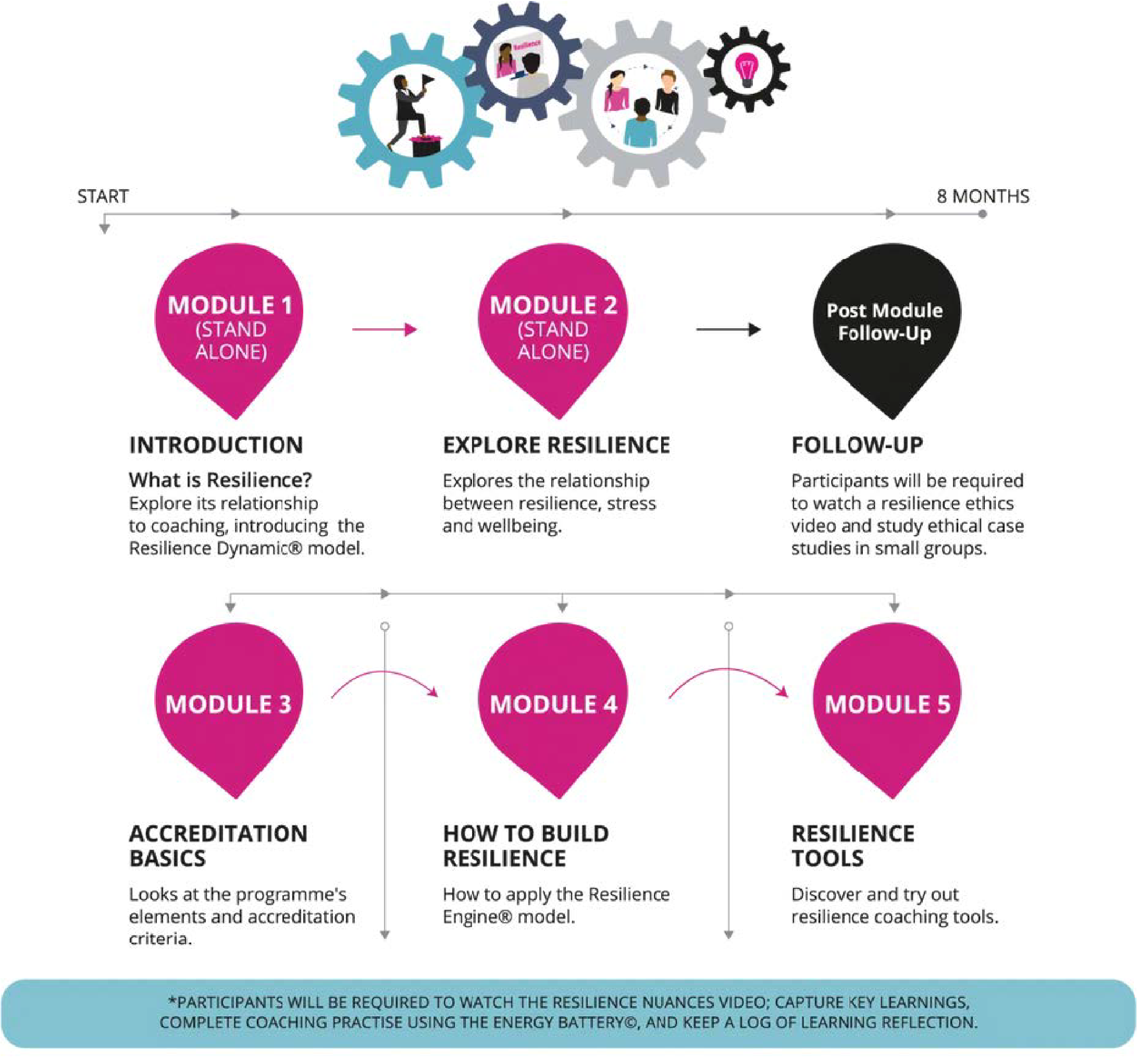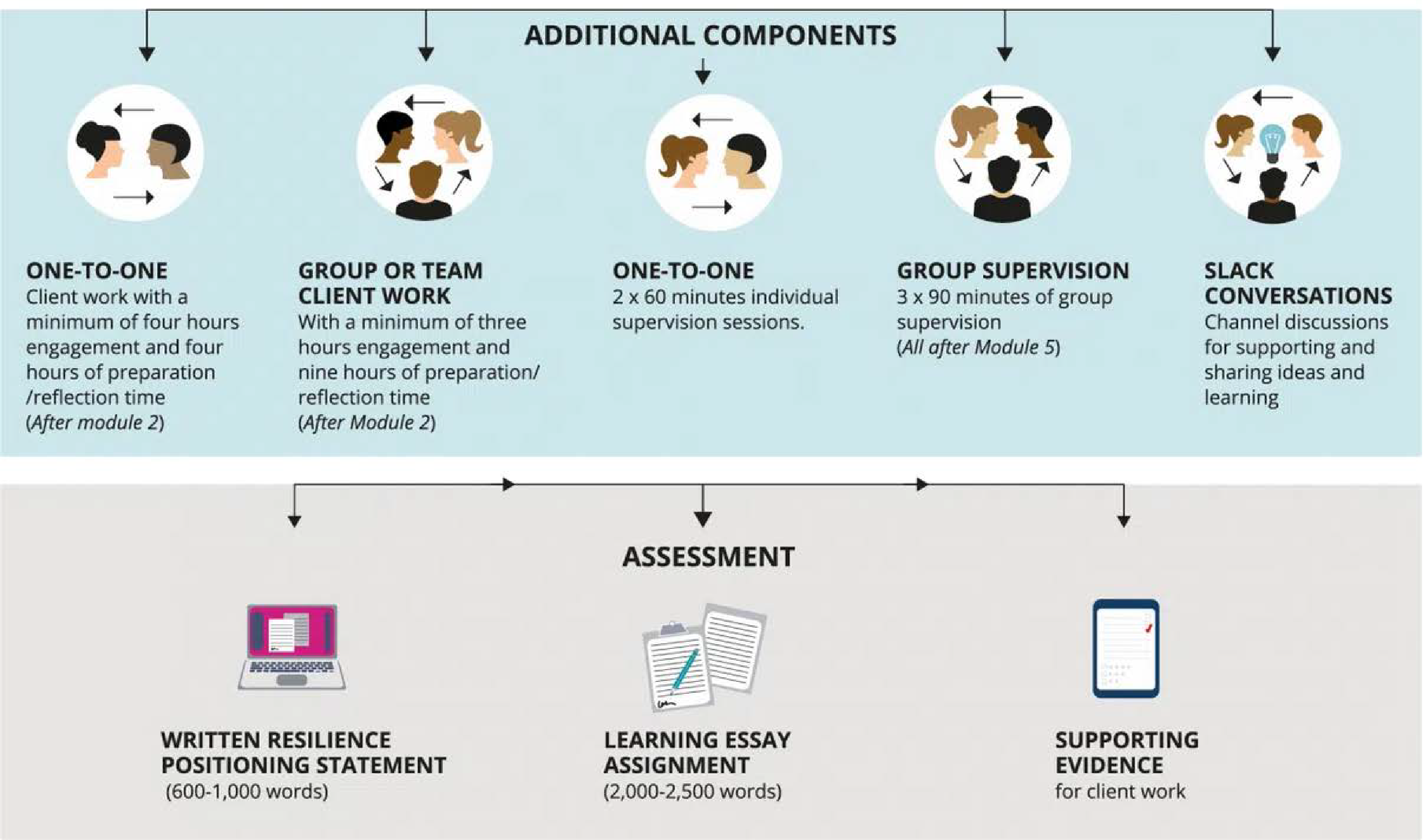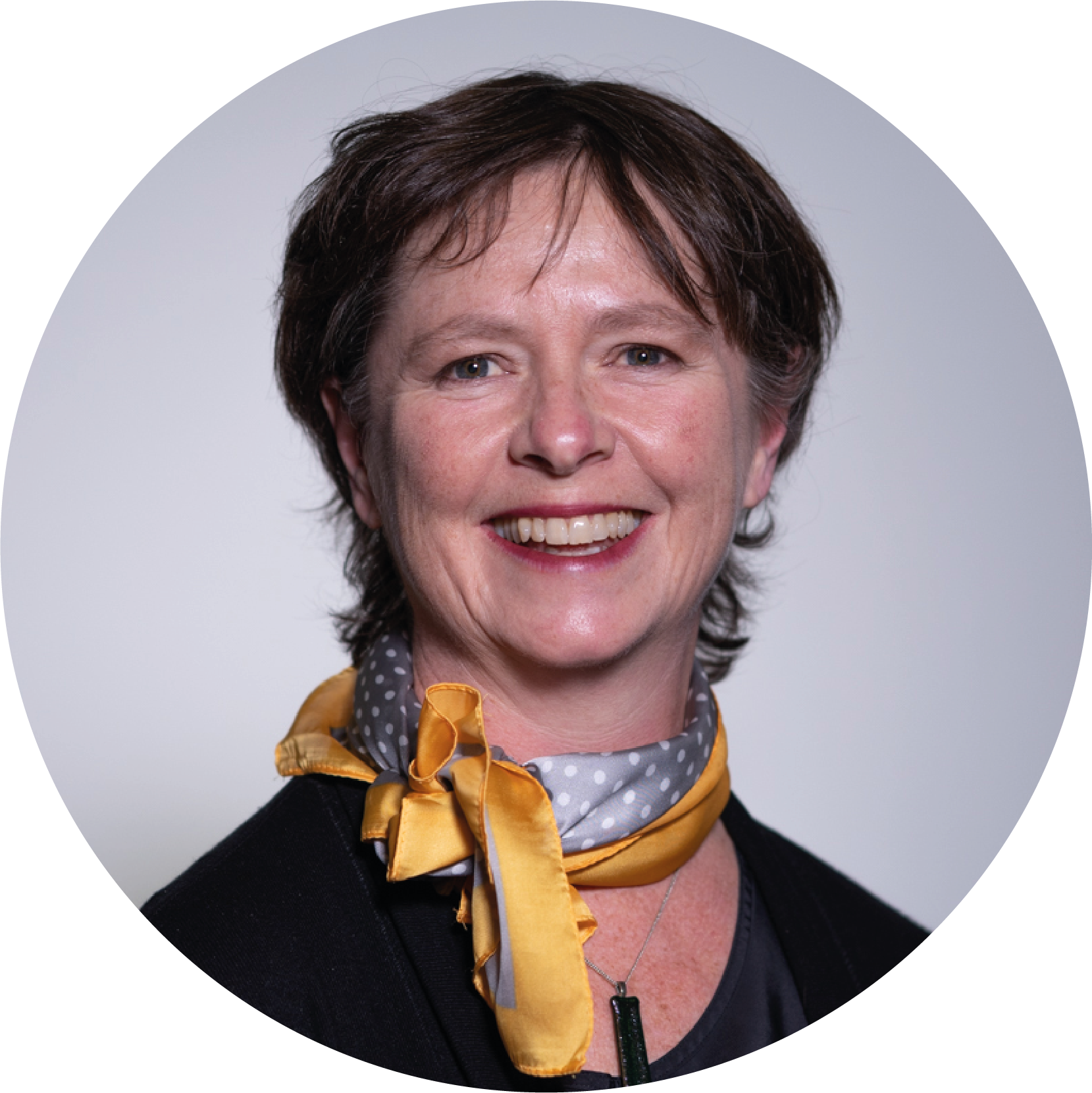Why It Costs £2,950 To Become A Resilience Dynamic Practitioner
Coaches and the coaching industry are often pretty terrible at explaining the reasons behind pricing.
We’re different.
At the Resilience Dynamic we have built our business on the principle of accessibility for everyone. That means being transparent about not just what or how we do things, but also why and how much. This article sets out why it costs £2,950 (+VAT) to become a Resilience Dynamic practitioner. We know it’s a big investment, particularly for individual coaches, and that you deserve to know what goes behind that price tag.
Who Is This Article For
You will want to read this if you are interested in:
- Supporting the resilience and wellbeing of others around you – coach, OD and HR practitioners
- Commissioning suppliers to boost the resilience and wellbeing of some of your leaders and managers.
Through this article, you’ll learn the commitment it takes to successfully coach for resilience and wellbeing, and why becoming a resilience coach with a license to practice in any way you choose, means that you need to fully immerse yourself in the work. And how that takes time. Learn more about the Resilience Accreditation Programme.
The Two Principal Drivers of Price for the Resilience Accreditation Programme
The 2 main drivers of costs to become a Resilience Dynamic Practitioner is the easy bit to explain. This is about the programme structure and time involved, plus what the license granted is based upon:
Delivery Effort and Time
The biggest driver behind the programme price is Faculty time to deliver this 8-month programme. Overall, it’s a lot of Faculty time! As an example, for a programme of 15 participants, the total client-facing Faculty time is 135 hours! And that doesn’t account for all the behind-the-scenes discussions.
What’s Involved?
- 5 theory modules, each of ½ day, across the first 2 months of the programme.
- Significant supervision thereafter – both group and 1-1 – on an ongoing basis, supporting the necessary practical client work needed for learning and submission.
- Additional specific components including a debate on ethics, a live Q&A on licensing matters, plus a Founder/Research focussed live discussion.
- During the full 8 months, Faculty are involved in supportive discussions via our online platform Slack.
- The final Faculty task is marking. Each participant must successfully submit a learning essay and positioning statement covering the 9 core criteria for license submission. Faculty collaborate to verify alignment.


The other driver of time is programme management and administrative time. The bulk of the administration is done by the Resilience Dynamic core team. This includes all matters such as scheduling, managing all participant online tools, all programme communications, participant tracking, video management, and actual licensing. One of our Faculty acts as lead programme manager throughout the whole process, ensuring that there is great coordination between the admin and faculty teams.
There are 20 days of administrative support allocated in the year to the Accreditation programme, on top of 4 Faculty Programme Management days. 24 programme management days in total.
You might already be doing the numbers yourself. And beginning to get the hang of the commitment involved in delivering this programme.
The License To Practice with our Intellectual Property – Our Research
The Resilience Accreditation license is a legal license that grants each participant the right to use the Resilience Dynamic® and Resilience Engine® research models that are registered trademarks across most territories in the world, together with all the coaching tools provided during the programme. The license is flexible – it means that the successful practitioner can work with any of the materials and research models in any way they choose.
Any license fee normally has a price tag. We include the Resilience Accreditation license fee within the programme fees. Our minimum price tag, if we were to separate it out, would be £180 (+VAT) per annum.
And that is the low end of what we ought to charge given the work that has gone into it all! We won’t go into every detail of every layer or re-work of our intellectual property, but we are proud of what we have built: long-standing, rigorous research that has given insight into what resilience is, and how to build it. The qualitative research started in 2007, and since then encompasses both ongoing quantitative and qualitative work. In that time, we have collected data on more than 5000 individuals, conducted over 400 in depth interviews, co-researched with more than 68 organisations into team resilience, and worked to consolidate and make accessible our findings. This is no mean feat.
Our license fee, embedded into the programme fee, honours this effort. At least to some extent.
Why Is The Resilience Accreditation Programme 8 months? Why so long?
In the end if you are a coach or OD/HR practitioner looking to work successfully in this field, or indeed you are commissioning work to support your internal leaders and managers in their own personal resilience in a meaningful way, you need to look at the depth of the training and ongoing credentialling of your supplier.
The principles of our resilience research show the following:
- It’s your adaptability, in any context.
- It’s not just about being reactive, but it’s about proactively building the capacity to react intentionally, whenever the need arises.
- It’s systemic and integrative. It involves all the contexts in which you operate, and it encompasses your wellbeing, both mental and physical.
Resilience coaching needs to cover all of this, and not just in theory, but in practice.
There are some suppliers of resilience coach training who offer 1 day workshops on incorporating resilience into their practice. A half day even. Practitioners will deploy the tools from these as best they can. These will work up until a point – when then it really doesn’t suffice. Whilst introductory workshops are great for coaches, at some point if you want to practice, it won’t be about tools but instead it will be about the systemic integrative nature of resilience itself.
The depth of the Resilience Dynamic ongoing research demonstrates to all of us in the community how much there is to learn and improve upon. What does that all mean to you as a practitioner or commissioner? You can count on the Resilience Dynamic as a safe pair of hands. Learn more about the Resilience Accreditation Programme.
Conclusion
We hope that you can see what is behind the delivery of the Resilience Accreditation Programme. Time. Years of Research. Commitment. Ongoing learning. That’s why the cost to become a Resilience Dynamic Pratitioner is £2,950 per person, and we need a minimum of 8 people to run the programme.
You may have surmised already that we don’t make much money at all in this programme. Indeed the Accreditation Programme, whilst a flagship programme for us, makes us very little. Why don’t we charge more? Because our mission is to make resilience accessible for everyone. That means we need coaches like you to come into it and join us and spread the magic! And we need commissioners like you to notice how thorough we are, and commission us to help.
Behind The Scenes
Behind The Scenes – Fixed Costs
There are a number of fixed costs associated with the Resilience Accreditation Programme, not already accounted for. These have to be covered somehow by the business:
- The ICF accredits the Resilience Accreditation Programme for 60 hours. The renewal fee is around £750 every two years, although it keeps rising!
- There are clearly marketing costs associated with letting you and others know about the programme. We estimate these to be around £3,000. That covers direct costs of marketing, along with the time of key personnel’s time and effort.
Behind The Scenes – What It Takes To Become Faculty
Faculty are deeply experienced resilience coaches that have gone through not just the Resilience Accreditation Programme, but also a minimum of one year’s apprenticeship as Assistant Faculty.
The skills required of a teacher are similar in any profession. It is only through the complete assimilation of the knowledge into one’s day to day practice, so that it really becomes part of the DNA of how you work, can you then teach. Teaching both clarity and simplicity, and a doorway to more complex areas. Our faculty discuss areas such as gender differences, mental health issues, team and organisational resilience with participants. It’s quite an ask!
The Resilience Dynamic Faculty are some of our most experienced practitioners. The average time for Faculty since becoming accredited is 7 years.
Behind The Scenes – Supporting a growing Community of Practice
Once you become a Resilience Dynamic coach, you join a vibrant Community of Practice. This is a learning community with a number of different activities across each year:
- The Resilience Dynamic Community of Practice live 1 day conference.
- The quarterly Resilience CPD events focussed on enhancing skill and practice
- The monthly Resilience Dynamic Connect & Learn sessions which supports peers in their work
All of this takes time and cost to manage and run.
Why do we do this? We work with people whose resilience is across the Resilience Dynamic spectrum, ranging from high performers who operate purposefully and at ease, through to those really struggling with their mental health. Resilience Dynamic coaches work with anyone and everyone across this spectrum, and need to be equipped to do so. Ethical bells can ring loudly. Our own emotional wellbeing can be severely affected by what we witness. We need to support our own resilience significantly to do this work well. And we need great supervision and great support from one another.
This all takes time commitment from the Resilience Dynamic team who facilitates the community.
Is There An Alternative To Resilience Accreditation That Takes Less Time/Skill?
The short answer is yes! But given the depth of research findings, this is not for full resilience support and definitely not resilience coaching.
In fact, we have been seeking a proven light-touch alternative that genuinely boost resilience and at the same time, does not create harm. We tried cut-down versions of the Resilience Accreditation Programme but they just didn’t work. So we went back to the drawing board.
In 2023 we released a simple, proven process called Checkin Checkout, or CICO for short, that helps groups of people – peer groups – build psychological safety together. This is a very simple step towards deeper, long-lasting resilience and wellbeing in organisations.
We haven’t got this going for professional coaches at this time. However the Resilience Dynamic offers organisations a way to build cohorts of CICO Ambassadors, who can then spread the process in their organisations. Cool huh? Of course there are CICO practitioners amongst the Resilience Dynamic delivery capability, so we can always help do this for you too. If you want to know more, see here.
Do get in touch if this article has prompted a query: [email protected]. We’d be delighted to help.
Next Steps
- Looking for support to invest in yourself and add resilience coaching to your toolkit? Explore the Resilience Accreditation Programme.
- Check in with your resilience, using our Resilience River© method.
- Discover your own resilience level for free, with our Resilience Dynamic® Indicator.

Author: Jenny Campbell Founder and CEO of the Resilience Dynamic
Follow Jenny on LinkedIn for more of her thoughts, resilience research, and ideas.
Gain exclusive access to Resilience Dynamic in-depth insights
Extend your knowledge, expand your thinking into Healthy, High Performance.
Register today and get your free login to:
- Gain exclusive access to in-depth resilience insights.
- Download and share the insights with your friends and colleagues.
- Receive resilience in-depth insights and tools straight to your inbox, every month.
If you are already receiving our resilience tools via email but it's the first time seeing this exclusive access, do register. You'll get the new exclusive insights, plus be able to download all articles. Simply complete this registration form once to get your login details.
Read our privacy policy
